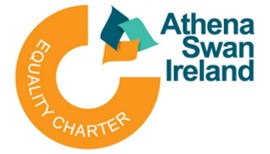-
Courses

Courses
Choosing a course is one of the most important decisions you'll ever make! View our courses and see what our students and lecturers have to say about the courses you are interested in at the links below.
-
University Life

University Life
Each year more than 4,000 choose University of Galway as their University of choice. Find out what life at University of Galway is all about here.
-
About University of Galway

About University of Galway
Since 1845, University of Galway has been sharing the highest quality teaching and research with Ireland and the world. Find out what makes our University so special – from our distinguished history to the latest news and campus developments.
-
Colleges & Schools

Colleges & Schools
University of Galway has earned international recognition as a research-led university with a commitment to top quality teaching across a range of key areas of expertise.
-
Research & Innovation

Research & Innovation
University of Galway’s vibrant research community take on some of the most pressing challenges of our times.
-
Business & Industry

Guiding Breakthrough Research at University of Galway
We explore and facilitate commercial opportunities for the research community at University of Galway, as well as facilitating industry partnership.
-
Alumni & Friends

Alumni & Friends
There are 128,000 University of Galway alumni worldwide. Stay connected to your alumni community! Join our social networks and update your details online.
-
Community Engagement

Community Engagement
At University of Galway, we believe that the best learning takes place when you apply what you learn in a real world context. That's why many of our courses include work placements or community projects.
Athena Swan at University of Galway
Athena Swan at University of Galway
The Athena Swan Charter is a framework that is used across the globe to support and transform gender equality in higher education and research.

The Irish Athena Swan Framework is used as tool to drive systematic, long term change at multiple levels across the University. There is a collaborative synergy between the Athena Swan work carried out at School/Unit level and the activity driven at institutional level. Athena Swan action plans specific to the School/Unit context compliment and reinforce the Athena Swan actions taking place at a broader institutional level and vice versa. There is a clear line of communication from the individual staff member who expresses their views through local and institutional level consultation (surveys/focus groups etc.) all the way to the most senior levels of the organisation.
Two fundamental principles of the gender equality programme, and Athena Swan, are:
- That the real lived experiences and opinions of staff can and should have a direct impact on how this work is shaped.
- That all policies, procedures and changes made should be re-evaluated for their effectiveness on an ongoing basis.
Future Plans
A lot of progress has been made over the past number of years, but challenges and barriers still exist. We remain committed to progressive equality, and are mindful of the wider international context and the need to continuously work together to create a supportive, inclusive, and diverse University.
Our 2025–30 Athena Swan strategic priorities aim to embed equality and inclusion more deeply into our institutional systems and culture, focusing on:
Priority Areas |
Actions |
Leading and Managing Inclusively
Increase trust, improve communication, facilitate co-creation model mind-set. |
|
Safe and Respectful Environment/Dignity and RespectCreating a safe and respectful environment built on dignity and to foster an inclusive culture where all staff and students can thrive, contribute fully, and reach their potential without fear of discrimination, harassment, or marginalisation. |
|
Embedding EDI SystematicallyInculcate individual and collective responsibility where commitment to EDI is both measurable and accountable. |
|
Increasing Representation of Women in Senior Academic GradesReach target of 30% female EP (currently 21%) by 2030 while maintaining the strength of the broader pipeline.Target gender profile at SL and Prof In to reflect the gender profile of grades LAB and Lecturer. |
|
Creating Flexible and Inclusive Working Environment to Support the Wellbeing of All (including parents and carers)Embedding supportive policies and practices that specifically recognise and accommodate the needs of staff with caring responsibilities, allowing balance between professional and personal commitments without compromising their wellbeing or career progression. |
|
Supporting Professional, Managerial Support and Technical StaffCreate ‘Job families’ competency framework as coherent & scaffolded approach for PMS to build individual careers.Enhance Job Sizing, PfG and career supports for all PMSS. |
|
Data Gathering – Equality GroundsRoll out an extensive self-declaration campaign encouraging staff to declare their race/ethnicity and disability through the Core System. |
|
Enhance Research Staff Inclusion, Engagement and ProgressionEngage with internal research infrastructures to support inclusion, active engagement and integration of research staff while recognising that the research staff cohort is the most ethnically diverse and gender balanced cohort. |
|
Intersectionality in Practice: Streamlining EDI ProgrammesStreamline operationalisation of EDI programmes of work, Gender Eq, Race Eq, SVH and UDA, to maximize effective implementation of EDI objectives through coherent integrated governance and planning which minimises duplication. |
|
Universal Design and AccessibilityApply universal design principles in the development of specific initiatives to widen inclusion of disabled staff and students. |
|
Our institutional priorities build on past progress in addressing gender inequality and discrimination. We aim to be ambitious with institutional change, maintaining momentum and ensuring effective and sustainable implementation of processes like WAM, Performance for Growth, and inclusive governance.
The University’s full Athena Swan Gender Equality Action Plan can be found here.
EDI News
Nov 12th 2025
University of Galway celebrates success at the Irish National Athena Swan Awards 2025 (November)
Sept 29th 2025
University of Galway adopts the ALTITUDE Charterter
June 12th 2025
University of Galway submit their first Athena Swan Silver Application








.png)
.png)
.png)
.png)







